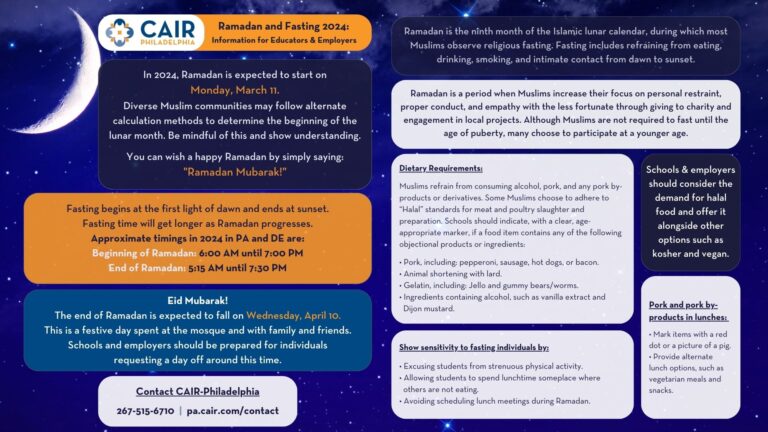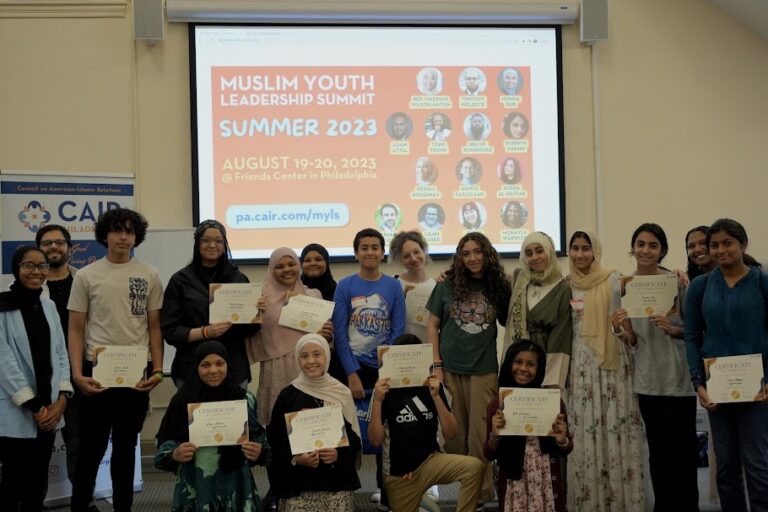by Jacob Bender
CAIR-Philadelphia Executive Director

This past week marked the 70th Anniversary of the United States dropping atomic bombs on the city of Hiroshima on August 6, and on Nagasaki on August 9.
Over 70,000 human beings were instantly killed in each city; thousands more would die horrible deaths in the coming weeks, months, and years from radiation poisoning and cancers. Over 200,000 would eventually die as a direct result of the bomb.
Although historians and scholars continue to disagree about whether dropping atomic bombs on Hiroshima and Nagasaki was absolutely necessary to bring an end to the war with the Empire of Japan, there is no doubt about the far-reaching destruction caused by history’s only use of nuclear weapons of mass destruction.
I write about this, not only because it is the 70th Anniversary of the Hiroshima/Nagasaki bombings, but also because I believe the world continues to exist under the shadow of The Bomb. One Muslim nation, Pakistan, already has The Bomb, and the situation along the border with India remains extremely tense.
Another Muslim nation, Iran, has recently concluded a historic nuclear agreement with the US and other nations. It is my opinion that this treaty is in the best interest of all the peoples of the world, including the Muslim world and the volatile Middle East. As President Obama has stated, with this agreement, the chances of another war in the Middle East increase exponentially. It would be a historic tragedy of great proportions if the Islamophobic and pro-Israel lobbies were able to hand President Obama a humiliating defeat by getting the Iran nuclear agreement defeated in Congress. Read The New York Times analysis of AIPAC’s role in opposing the treaty.
For those interested in the birth of the Atomic Age in 1945, I recommended three books:
“The Decision to Use the Atomic Bomb” by Gar Alporwitz
“Hiroshima” by John Hersey
“The Making of the Atomic Bomb” by Richard Rhodes
The guarantor of democracy in the face of government transgressions is not “a well-regulated Militia,” but a well-informed citizenry. Learning about American excesses following the 9/11 attacks — from the disaster of the Iraq war, to torture of Abu Ghraib and the incarcerations at Guantanamo; from the anti-Muslim bias at the bedrock of the “War on Terror,” to the Orwellian overreach of the NSA and entrapment policies of the FBI — may well motivate some to exercise their Constitution right “to petition the Government for a redress of grievances.” This is the right of all citizens and legal residents of the Republic, and Muslims in the United States should be able to actively participate in public debate on the great issues of the day without the accusations of “Islam = Terror” spouted by the Islamophobic network. Unfortunately, that anti-Muslim network is alarmingly active and well-funded; and that is precisely why CAIR is crucial to the defense of the Muslim community, and why we are planning the following historic event.
*The opinions expressed in the above article are the personal opinions of Jacob Bender, and do not necessarily reflect the official views of CAIR-Philadelphia.





